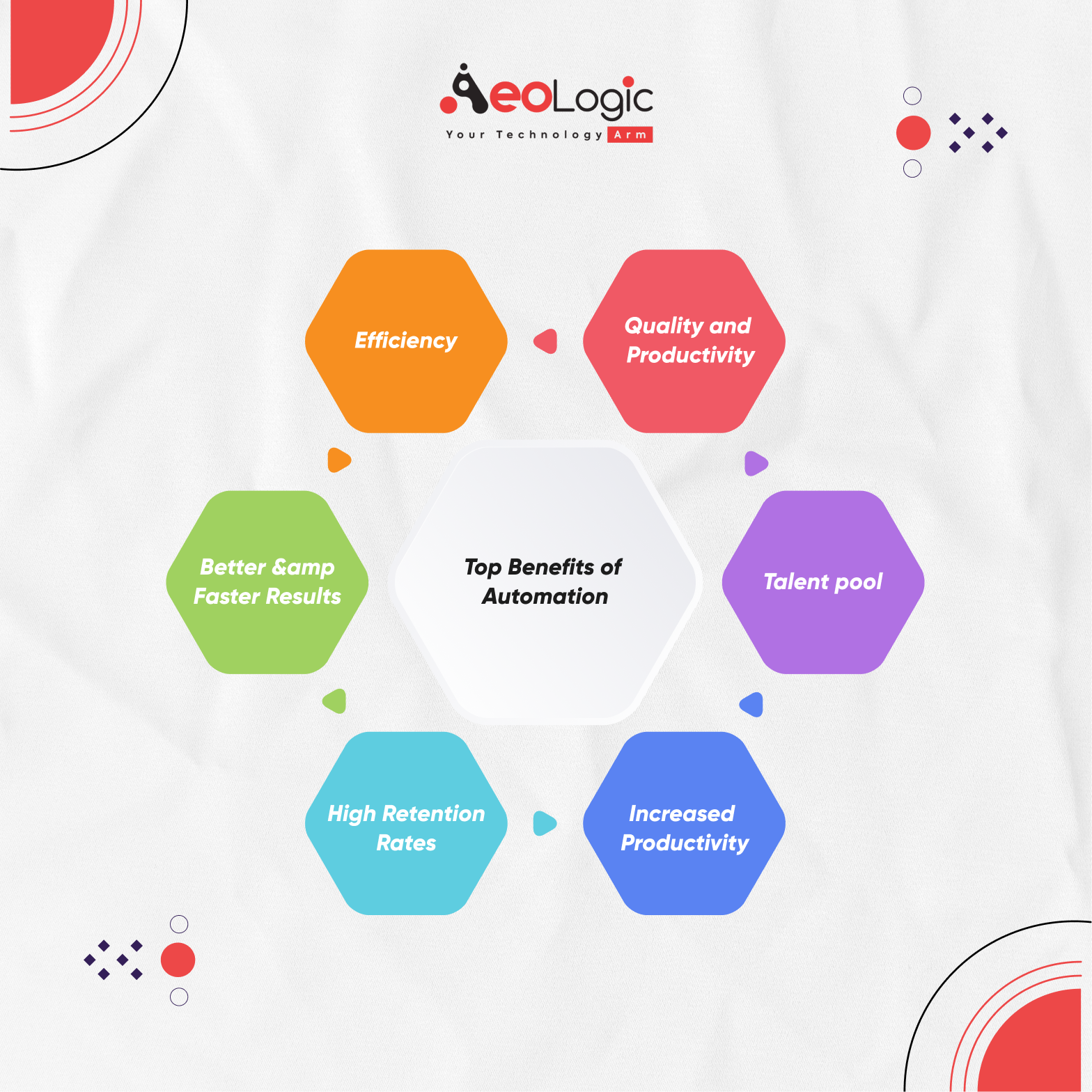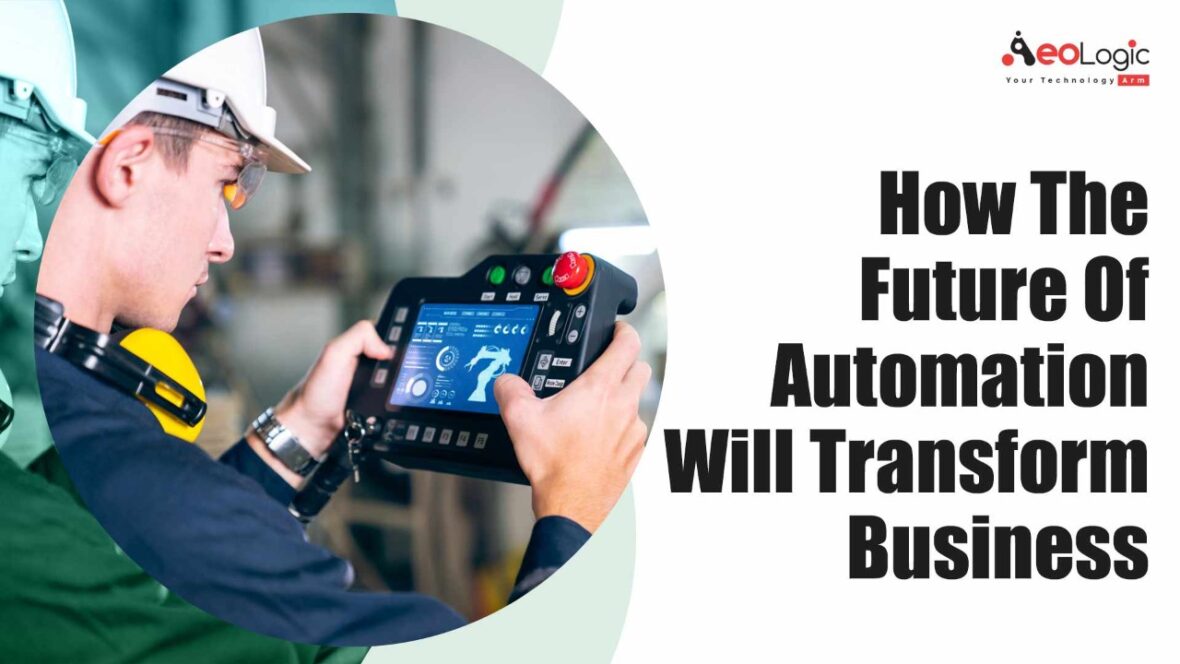New technology is changing business forever. Automation will disrupt every industry in the next 50 years, and it’s happening right now. Whether you’re working in manufacturing, retail or finance — automation will change the way you work. The future of automation and artificial intelligence (AI) isn’t known yet. It depends on who you ask and what they’re willing to share with you. So in todays blog we will look at the how the future of automation will transform business.
Lets begin!
The future of automation is not only about robots but also about artificial intelligence. We can expect a more dynamic and creative world in the coming years. AI writing assistants will help us to write better content and make our work more productive. The revolution in AI will make it possible to generate content using the same level of creativity that humans have today.
What is Automation in Business?
Automation is a process that involves the use of computers, robots, and devices that can perform tasks without human intervention.
Automation is not just about machines but also about software and hardware. The machines are programmed to perform specific tasks by following instructions given by humans or other automated systems. The software and hardware are then linked to each other through networks in order to achieve greater efficiency.
We can automate our own work when we have access to cloud computing platforms like Amazon Web Services (AWS). These platforms allow us to rent servers from third parties on an hourly basis for a fixed cost per hour.
Also Read: Digital Solutions Ensure Supply Chain Visibility to Improve Resilience
What Are the Benefits of Automation?

Automation has the potential to transform business in many ways. It provides organizations with a more efficient way of doing things, improves quality and productivity, and reduces costs. Here are some of the benefits of automation:
Efficiency
Automation allows businesses to be more efficient by reducing the number of steps involved in a process and allowing it to run more smoothly. This can result in significant cost savings for small business owners who cannot afford to have their employees take breaks or switch tasks frequently due to time constraints.
Quality and Productivity
Automation allows businesses to improve quality and productivity through the use of technology that helps employees complete tasks faster than ever before possible. This means that employees will not have as much downtime between tasks because they can be productive during their workday instead of sitting idle waiting for more work orders to be completed or products to be delivered.
Better & Faster Results
Automation allows you to increase your productivity by eliminating tedious tasks or repetitive actions that take time away from other parts of your business. This means you’ll be able to focus more time on developing new products or improving your existing ones.
Talent pool
Automation frees up employees to focus on more valuable projects—like training new hires or building out their own product lines—that will help them grow their careers and advance within the company over time.
Boost your business performance with our automation solutions!
High Retention Rates
The high retention rates that robots can achieve are one of the major reasons why they are so effective. Robots work 24 hours a day, seven days a week, and never need to take vacation or go on sick leave. The result is a highly efficient workforce that can produce high-quality products at low cost. Hence, businesses that adopt a robotic workforce will see their profits soar—and their employees will benefit from lower unemployment rates.
Increased Productivity
Increased productivity for less time spent on manual labor. With an automated system, employees don’t need to spend as much time handling customers or carrying out other tasks that may have been done manually before.
Also Read: How is Digitalization Transforming the Face of Mining Industry?
How Automation Will Change Business
- Change in operations focus: This change in operations focus is already underway. For example, many companies have created internal systems to support agile processes like DevOps (development operations), which enable them to respond more quickly to changes in market conditions or client needs.
- Robots become “co-workers: “Robots will be a part of our daily lives sooner than you might think. They’ll be in the kitchen, in the office, and even at home—all of which is a great thing. But they’re not going to just work alongside us; they’ll become “co-workers” that are more efficient and effective than humans could ever be.
- Better service is possible: The future of automation will be a place where machines and humans work together to provide customers with the best service possible. This means that, instead of having a single human working at an outlet, there will be multiple machines with different functions that help make up a more efficient team. For example, you could have a robot who provides packaging services while another robot handles customer service.
The effects of automation in Business
Automation has been around for a long time, but it’s only recently that it’s become a huge part of the business world. It started with the Industrial Revolution, and now it’s changing the way we do everything from our personal lives to our professional ones.
Here are the effects of automation in Business:
Automation is an important part of modern life, but there are also some downsides:
- It eliminates jobs. In manufacturing, for example, automation has caused companies to lay off hundreds of workers every year.
- Automation can be expensive. Replacing an employee with a machine incurs costs for training and maintenance as well as higher insurance premiums. Companies have also had to pay more money for their human employees’ health care because robots don’t get sick or injured like humans do.
- It can create unsafe working conditions for those who remain on the job. Robots are not equipped with safety features such as fall detection or emergency stop buttons—and they’re not designed to work alongside humans in an office environment without causing injuries or accidents.”
Also Read: The Role & Benefits of ERP in Supply Chain Management
The Roles of Automation In The Future Of Business
Automation is the future. It’s here, now, and it’s going to change everything.
That’s right: automation is coming to your business. And it’s not just any kind of automation—it’s the kind that will do away with repetitive tasks and free up the time required for you to focus on what you do best. And that means you’ll be able to focus more on leadership, strategy, innovation, and creativity.
What does this mean for your business? Well, it means that you can increase productivity by 25%. You’ll also be able to expand your reach faster than ever before because you won’t have to worry about keeping up with office workers in other cities or countries by ensuring they’re working at their best capacity.
Instead of spending your time doing repetitive work like answering emails or scheduling calls for clients—which can easily take up half your day—you’ll be able to spend more time actually doing something meaningful for your company!
Final Thoughts
In the future, automation technology will generate new job opportunities. It will revolutionize businesses and stimulate economic expansion. Additionally, it will foster innovation and provide an exceptional client experience. Customers will receive high-quality services as a result of organizations’ efficient operations. In addition to fostering fresh ways of thinking, it will boost diverse methods of work and increase consumer involvement.
When it comes to changing your business, automation is one of the best ways. Automation can help you save money, increase productivity, and improve customer experiences. But how do you know which automation systems will be right for your company? And what should you look for when selecting an automation system? Aeologic Technologies is a great place to start!







